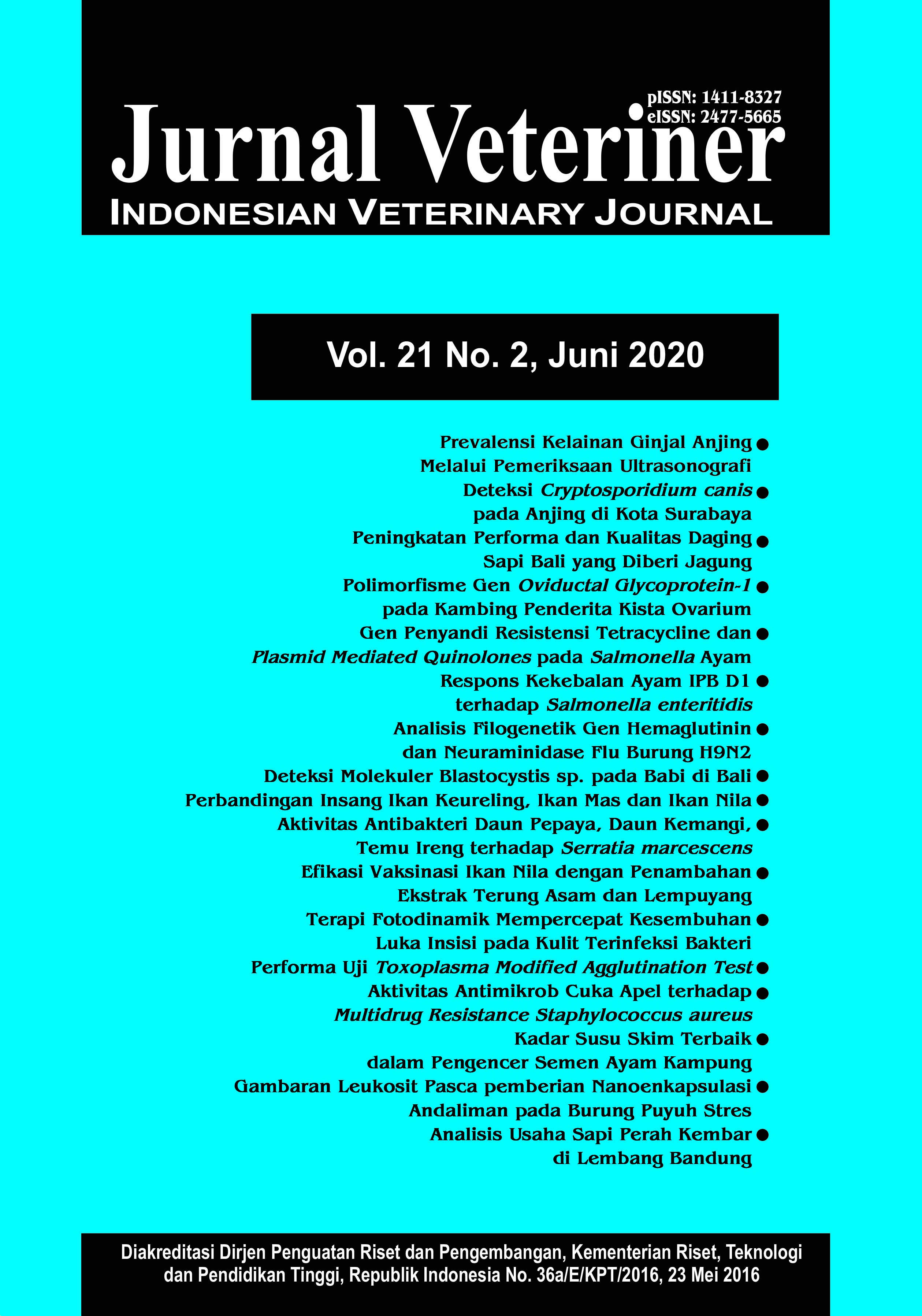Deteksi Cryptosporidium canis pada Anjing di Kota Surabaya (CRYPTOSPORIDIUM CANIS DETECTION IN DOGS IN THE CITY OF SURABAYA)
Abstract
Cryptosporidiosis is a disease caused by Cryptosporidium spp. protozoan parasites and are zoonotic. Cryptosporidium canis is the main species that infects dogs. Transmission of C. canis in dogs to humans is possible. This study aims to detect microscopic C. canis infection based on morphology and molecularity using the Polymerase Chain Reaction (PCR) in dogs in Surabaya City. A total of 80 diarrhea dog feces samples were taken from Animal Hospitals and animal clinics in several areas in the Surabaya City, then added potassium dichromate and stored at 4OC. Detection was made of the presence of Cryptosporidium spp. oocysts microscopically which is then confirmed by molecular examination using the PCR method. The results showed 40 positive samples containing Cryptosporidium spp., oocysts, with a size of 2-6 ?m. Ten samples from the total positive sample of Cryptosporidium spp. oocysts by microscopic examination, with the PCR test there were seven positive samples of C. canis. Based on the results of the study it can be concluded that the species that causes Cryptosporidiosis in dogs in Surabaya City is C. canis. The high cases of Cryptosporidiosis in dogs can be a warning to be able to prevent Cryptosporidium spp. infections, especially in pets that have the potential as a reservoir in spreading disease.



















